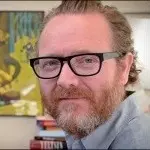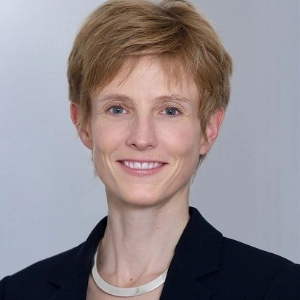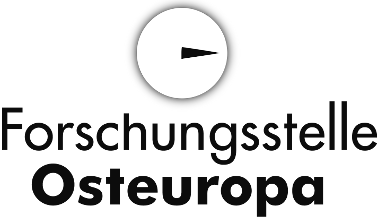It is already six years since Crimea was annexed by Russia. To what extent did this event affect the two societies?

Graeme Robertson: The effects of the annexation of Crimea on Russian society were dramatic and long-lasting. The most well-known element was the rapid and durable rise in the popularity of President Putin. But the effects were deeper:
In surveys we conducted before (October 2013) and after (June 2014), we found a transformation in how Russians felt about their president – a surge not just in approval, but also in feelings of trust, hope and pride, which had been very low indeed. Fascinatingly, the evidence suggests that Russians did not in fact become more nationalistic – rather, their assessments of their country caught up with their already existing high levels of patriotic feeling.
While the extent of social consensus after Crimea was always exaggerated, the bubble around Vladimir Putin seemed to burst with the announcement of unpopular pension reforms in 2018. Over the rest of that year, Russian society became increasingly characterized by falling trust in the authorities and increasing economic anxiety. However, sentiment appears to have stabilized, even improving somewhat in the last year. Nevertheless, record numbers of Russians report feeling that society’s interests run counter to those of the state. These contradictory feelings reflect a combination of patriotism with a lack of political choice that alienates large numbers of people from the political process.

Gwendolyn Sasse: The annexation of Crimea has had far-reaching consequences for the Ukrainian state and Ukrainian society. Physical access to and from Crimea via the land route has become extremely difficult, but the annexation has severed other kinds of links between friends and family members in many cases as well. (See survey data)
Moreover, the annexation of Crimea created the space for the mobilisation of Russia-backed separatists in the Donbas and a war that has already claimed over 13,000 lives and displaced at least 2.5 million Ukrainian citizens (1.5 million internally displaced, plus about a million who fled to Russia).
Internal displacement has been accompanied by processes of stigmatization and political disenfranchisement. An estimated 40,000 people – among them many Crimean Tatars – have left Crimea for other parts of Ukraine, including western Ukraine, thereby adding to Ukraine’s internal diversity and raising awareness of the historical and contemporary fate of the Crimean Tatars.
Ukrainian politics and society are decisively shaped by the fact of the country’s being at war. War requires resources and reprioritisation, including significant investment into the Ukrainian military. And war does not lend itself well to combination with an overarching process of structural reform.
Many observers have talked about the “Crimean Consensus” in Russia. What does this actually mean? And is there a corresponding phenomenon in Ukrainian society?

Graeme Robertson: After the initial enthusiasm, politics in Russia became more consolidated in ways that had looked unlikely before. The so-called Crimean Consensus had a number of elements – an agreement amongst the elite that Russia was an embattled fortress, a defender of traditional values against a decadent West and a defender of Russians and Russian speakers abroad.
The Russian leadership had already been pursuing much of this agenda before, but Crimea changed things in two ways – by giving President Putin and his entourage a major strategic victory over the West for the first time since the end of the Cold War and by creating a sense of foreign enemies that made it easier to portray criticism of the regime as treasonous. Attitudes to the European Union and the United States became sharply negative following the Revolution of Dignity in Ukraine, only recovering in 2018, according to Levada Center data. Together with extensive media censorship, this new atmosphere helped to mute criticism of Russia’s continued poor economic performance.

Gwendolyn Sasse: Among Ukrainians, the annexation of Crimea and the war in eastern Ukraine have strengthened identification with the Ukrainian state. Outside observers tend to reduce identities and politics in Ukraine to an east-west split tied to ethno-linguistic differences. While this perception has always been misleading, we see an interesting development towards an even stronger civic and bilingual identity during a period characterized by annexation, war and displacement.
Ukraine is a noteworthy case in the broader comparative study of war in this respect, as, unlike the case with many other wars, we have opinion poll data collected during the war, rather than only after it, including data collected among the people most directly affected.
There has been consensus in Ukraine on Crimea being Ukrainian – I suspect that this remains unchanged, though I haven’t seen survey data probing this. The annexation of Crimea and the war in eastern Ukraine have reinforced the westward orientation of Ukraine’s foreign and domestic policies as well as societal expectations that the country will become a “normal” European state.
Russia’s annexation of Crimea and the ongoing war in south-eastern Ukraine has, at a minimum, come very close to wrecking political relations between the two countries for years to come and has driven a wedge between these societies. Assuming that Crimea remains part of Russia permanently, is there a possibility of renewed rapprochement?

Graeme Robertson: On the Russian side, the barriers to rapprochement are lower, in the sense that it is Russia that sinned not Ukraine. On the other hand, neither Russia’s leadership nor the majority of its people are in the mood for apologizing. There are some chinks of light, though. Russian attitudes to Ukraine turned sharply negative after Crimea, but in recent months they have returned to being somewhat positive again.
Perhaps more significantly, it appears that a real desire to normalize relations with Europe and the US is making Russia keen to negotiate. But negotiations are likely to be limited in their scope. It is hard to imagine Russia returning control over Crimea, while Vladimir Putin is still in power. Alternatively, perhaps some kind of power-sharing arrangement might be possible, though the political costs for Kyiv would be huge.

Gwendolyn Sasse: Any rapprochement can only be partial and volatile unless Crimea has been re-integrated into the Ukrainian state. Even partial rapprochement would have to be preceded by an end to the war in eastern Donbas – a distant prospect at the moment, though not impossible in principle. Ukrainian president Volodymyr Zelensky has campaigned on a platform of ending the war and has demonstrated willingness to negotiate. Thus, much depends on whether Moscow develops the political will to work towards a lasting ceasefire, demilitarization and re-integration of the so-called “people’s republics” into the Ukrainian state. Certainly, there is no sign of this now. The revised Russian constitution will include a clause barring anyone from calling Russia’s territorial integrity into question. Thus, discussion within Russia about Crimea is being stopped before it can even arise.
It is interesting to note, though, that individuals in both countries differentiate between the actions of the government of the other country and ordinary people there. Moreover, the initial rise in negative views of the neighbouring country has begun to erode in both countries. Ukrainian and Russian opinion poll data from the autumn of 2019 indicate that the majority of Ukrainians and Russians have begun to see the neighbouring country in a positive light again. This re-established itself as the majority view in Ukraine more quickly than it did in Russia.
Will Crimea ever return to Ukraine?

Graeme Robertson: It is hard to imagine a full return of sovereignty while Vladimir Putin is still President. Then there is the question of sentiment within Crimea itself – so long as Russia remains economically stronger than Ukraine, managing the politics of return will be hard. Nevertheless, the one thing I have learned about politics these last 30 years is to expect the unexpected, so never say never!

Gwendolyn Sasse: That would require a significant political change in Russia – both at the level of the elites and society. This is not likely in the short- or medium term. In the meantime, Ukraine would have to become attractive enough in terms of living standards and political freedoms to motivate Crimeans themselves to find a way to push the issue. A Ukrainian policy involving active efforts to maintain ties with the Crimean population rather than simply reiterating that Crimea is part of Ukraine, offering its own political narrative as an alternative to the official Russian narrative and lifting restrictions on access from the Ukrainian side in order to allow more domestic and international coverage of developments in Crimea would allow Ukraine to take small steps along the way.

Graeme Robertson is a Professor of Political Science at the University of North Carolina at Chapel Hill and Director of the Center for Slavic, Eurasian and East European Studies. His work focuses on political protest and regime support in authoritarian regimes. Graeme’s new book (with Samuel A. Greene) is Putin v. The People, published by Yale University Press in June 2019. The book presents a fresh new look at the social bases of support for and opposition to authoritarian rule in Russia.

Gwendolyn Sasse is the director of the Centre for East European and International Studies (ZOiS) in Berlin and a professor of comparative politics at the University of Oxford
